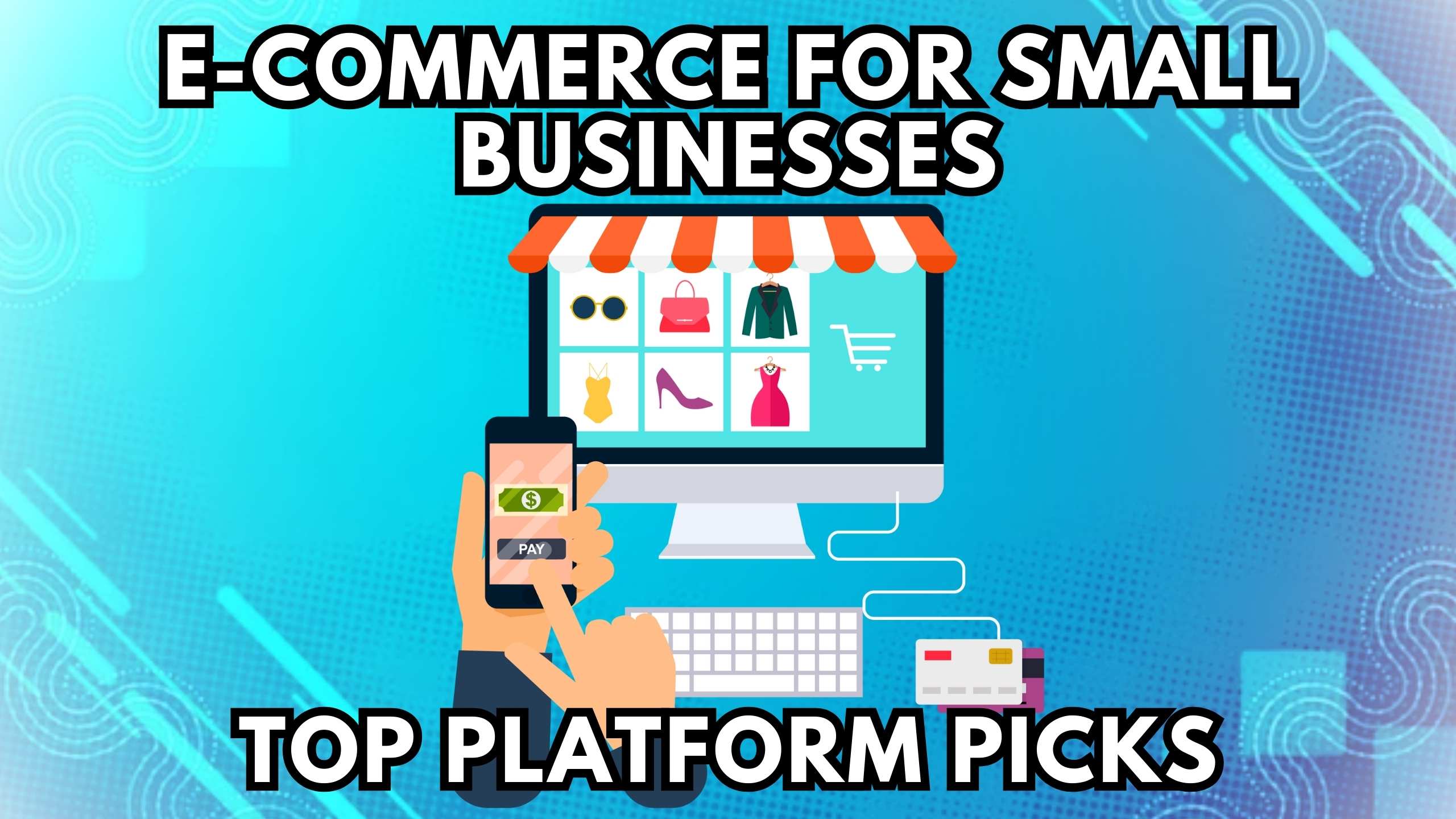E-commerce for Small Businesses: Top Platform Picks


E-commerce for Small Businesses: Top Platform Picks
In the ever-expanding world of e-commerce, selecting the right platform is critical for small businesses seeking success online. This blog will thoroughly discuss various e-commerce platforms, shedding light on their features, advantages, and suitability for small businesses.
1. Shopify: Power and Simplicity Combined
Shopify stands out as a robust e-commerce platform that seamlessly combines power and simplicity. With a user-friendly interface, it empowers small businesses to set up an online store quickly. Shopify offers a variety of customizable templates, secure payment options, and built-in SEO features, making it an ideal choice for those starting their online journey.
2. WooCommerce: Flexibility for WordPress Users
For businesses leveraging WordPress, WooCommerce is a compelling e-commerce solution. As a plugin for WordPress, it seamlessly integrates with existing websites, providing flexibility and customization options. WooCommerce is particularly advantageous for small businesses familiar with the WordPress ecosystem, offering a user-friendly approach to e-commerce.
3. BigCommerce: Scalability for Growth
BigCommerce is a scalable e-commerce platform that caters to the evolving needs of small businesses. It offers a comprehensive set of features, including inventory management and marketing tools. With a focus on scalability, BigCommerce is suitable for businesses with ambitious growth plans, ensuring that the platform grows with the enterprise.
4. Wix eCommerce: Design-Focused and Intuitive
Wix eCommerce is renowned for its intuitive drag-and-drop website builder, making it a great choice for small businesses with a strong emphasis on design. It offers a variety of templates and customization options, enabling businesses to create visually appealing and functional online stores. This platform is especially advantageous for those prioritizing aesthetics and user experience.
5. Magento: Open-Source Flexibility
Magento stands out as an open-source e-commerce platform, providing unparalleled flexibility for businesses with unique requirements. While it may require more technical expertise, Magento offers extensive customization options and scalability. Small businesses aiming for a tailor-made online presence may find Magento to be a suitable choice.
Conclusion: Choosing the Right Platform for Success
In conclusion, the best e-commerce platform for a small business depends on specific needs, preferences, and future growth plans. Shopify, WooCommerce, BigCommerce, Wix eCommerce, and Magento each bring unique advantages to the table. Evaluating features, ease of use, and scalability will help small businesses make informed decisions that align with their goals.
Unlock the Power of E-commerce with Subscribed.fyi
Empower your small business with Subscribed.fyi, the all-in-one solution for understanding, comparing, and managing your SaaS stack. Sign up today to unlock exclusive deals, streamline subscription management, and gain insights that propel your e-commerce strategy to new heights.
Relevant Links:





